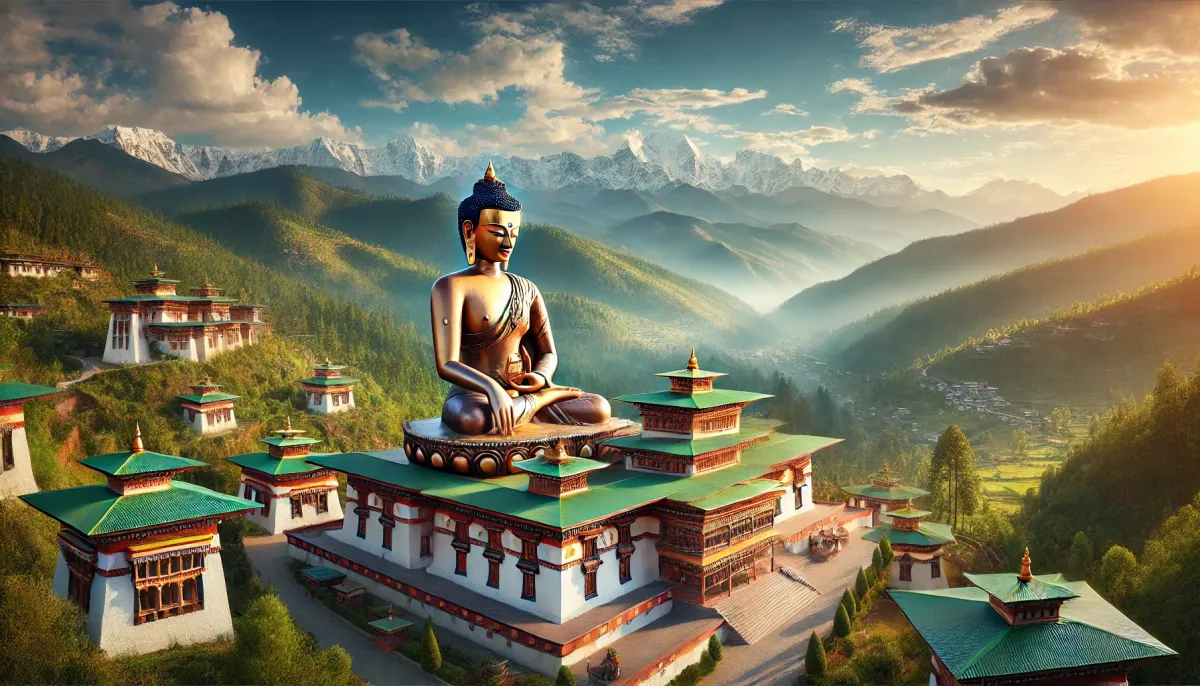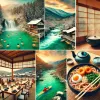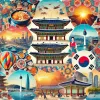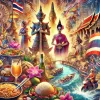Hi everyone, Mark here! As a seasoned traveler with a passion for exploring Asia's hidden gems, I’ve recently returned from an incredible journey to the Kingdom of Bhutan. This trip was unlike any other, and I'm eager to share my experiences, focusing on why Bhutan is often called the happiest country in the world. Buckle up, because this is going to be an adventure!
The Land of the Thunder Dragon: A Geographical and Historical Overview
Bhutan, officially the Kingdom of Bhutan, is a landlocked country nestled in the Eastern Himalayas, bordering India and China. Its unique geography, towering mountains, and breathtaking landscapes are just the beginning of its charm. Before my trip, I was intrigued by the name itself – "Bhutan." I found out it originates from the Sanskrit word "Bhu-utan," which translates to "the land of the thunder dragon," a fitting name given the country's dramatic scenery and rich mythology.
The country's history is equally fascinating. While its exact origins are shrouded in some mystery, Bhutan's cultural identity was largely shaped by Tibetan Buddhism, a fact readily apparent in its vibrant monasteries, unique architecture, and deeply spiritual culture. The Kingdom's history includes periods of British influence and a transition to democracy in recent times. It’s a fascinating blend of ancient traditions and modern aspirations.
Bhutanese Culture and People: A Glimpse into a Unique Society
The people of Bhutan are incredibly warm and welcoming. During my journey, I was constantly struck by their genuine happiness and deep sense of community. While the exact population is difficult to pin down (estimates range from 700,000 to 1,500,000 due to a lack of a comprehensive census throughout much of its history), the overwhelming sense of contentment and pride in their culture is undeniable. The majority of the population consists of ethnic groups with origins in Tibet and Nepal, each contributing unique elements to the national culture.
Here is a table summarizing some key cultural facts:
| Feature | Description |
|---|---|
| Major Ethnic Groups | Primarily Tibetan and Nepali, with smaller Indian populations |
| Religion | Predominantly Vajrayana Buddhism (75%), with Hinduism accounting for about 25% |
| Language | Dzongkha (official), with several other regional languages spoken |
| Traditional Dress | Distinct male (gho) and female (kira) national attire is widely worn |
The National Memorial Chorten: A Symbol of Peace and Faith
One of the most striking sights in Thimphu, Bhutan's capital, is the National Memorial Chorten. This stunning structure, built in honor of the third King of Bhutan, Jigme Dorji Wangchuck ("Father of Modern Bhutan"), is a place of profound spiritual significance for the Bhutanese people. Visiting it at dusk, as I did, was truly awe-inspiring. The sight of locals circumambulating the chorten, their faces etched with serenity, was a poignant reminder of their deep faith and devotion. This impressive stupa houses many sacred religious paintings and tantric Buddhist statues. While the King's remains aren’t housed within, his portrait is there for people to pay their respects.
The constant ringing of bells in the wind adds to the ethereal ambiance. The experience left a lasting impression on me – the simple act of reverence, the shared spirituality, and the palpable sense of peace all contributed to an unforgettable moment during my travels.
The Giant Buddha Dordenma: A Colossal Symbol of Peace
The sheer scale of the Buddha Dordenma statue is breathtaking. This colossal golden statue, located on a hillside overlooking Thimphu, is one of the largest Buddha statues in the world, housing tens of thousands of smaller Buddha statues within its structure. The intricate detail and the commanding presence of the statue are truly impressive. The statue itself is a masterpiece of craftsmanship, a testament to the artistic skills and deep-seated religious devotion of the Bhutanese people. It's a site well worth a visit for any traveler interested in seeing the country’s spiritual side.
Tashichho Dzong: A Fortress of History and Governance
Tashichho Dzong, located in Thimphu, is an extraordinary fortress-monastery. It now functions as the seat of the Bhutanese government, but its historical significance as a spiritual and administrative center is undeniable. This impressive structure, with its imposing architecture and historical significance, was more than just a landmark to me; it was a living museum, a testament to the enduring power of Bhutanese culture. Inside, I could feel the weight of history and the unwavering faith that permeates Bhutanese society. The Dzong also houses approximately 1500-2000 lamas. It offers a glimpse into the unique blend of spiritual and secular power that characterizes Bhutanese governance.
The Happiest Kingdom: Understanding Bhutan's Unique Philosophy
Bhutan's reputation as the "happiest country in the world" is not merely a marketing slogan; it’s a reflection of a deliberate philosophy that prioritizes the well-being of its citizens above economic growth alone. The Gross National Happiness (GNH) index, developed in Bhutan, measures well-being using factors beyond material wealth, including environmental conservation, cultural preservation, and good governance.
This philosophy is deeply rooted in Buddhism's emphasis on inner peace and contentment. The Bhutanese people demonstrate a deep appreciation for their natural environment and cultural heritage, creating a strong sense of community and national pride. It is this strong sense of community and connection to their history and environment that I believe forms the basis of their happiness.
Bhutan's Postage Stamps: A Collector's Paradise
Bhutan is famous for its innovative and visually stunning postage stamps. A visit to the Thimphu post office is a must for stamp collectors. I was amazed by the diversity of designs, from traditional art to contemporary themes, and the use of innovative materials like scented stamps, 3D stamps and even singing stamps! Bhutan’s commitment to creativity and artistry in its postage stamps is truly remarkable.
My Final Thoughts on Bhutan
Bhutan’s journey was deeply enriching. It’s a land where towering peaks meet profound spirituality, where ancient traditions harmonize with modern progress, and where the pursuit of happiness is not just a goal, but a way of life. Bhutan is a country that challenges our preconceived notions of progress and development, reminding us that true wealth lies in the well-being of our communities and the preservation of our planet. If you're looking for a travel destination that will leave you feeling inspired and rejuvenated, I highly recommend adding Bhutan to your list.







